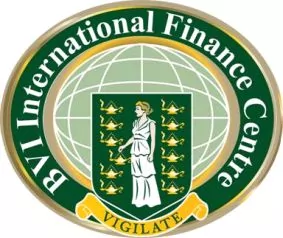In a brave and decisive judgment handed down on 20th September 2010, the Eastern Caribbean Supreme Court (on appeal from the BVI Commercial Court) has decided two issues demanding clear and unequivocal guidance, one of which ahead of the Supreme Court of England and Wales.
In Pacific China Holdings Ltd v Grand Pacific Holdings Limited [HCVAP 2010/007], the Court of Appeal ruled on the scope of discretion in deciding whether to enforce an arbitration award under the New York convention; and on the basis of appointing liquidators where there is a real question of enforceability and thus a bona fide dispute on the debt.
The Respondent sought to wind up the Appellant claiming it was owed $55M based on a Convention award made by an arbitration tribunal in Hong Kong. The Appellant raised Convention defences based on the BVI Arbitration Ordinance (which in turn repeated and applied the relevant provisions of the Convention word for word) of inability to present its case; the arbitration process was not in accordance with the parties' agreement, and accordingly that it would be contrary to public policy to enforce the award. The result of such a finding would, if it was contested, mean the Court should exercise its discretion and refuse to appoint liquidators.
At the application to appoint liquidators the Judge found that the Appellants' arguments could not be dismissed as being incapable, if developed in a full application to set aside an order for enforcement. However, he went on to conclude that the irregularities giving rise to those grounds, had they not occurred, would not have in any event impacted on the outcome.
The Court of Appeal held that the Court's discretion to override a Convention defence was narrow and limited to where there was a waiver, or estoppels or some such legally recognized principle, or where the error had been minor and prejudicially irrelevant. Further, the Court held that where there was a real question of enforceability of a Convention award and thus a real or bona fide dispute on substantial grounds, it was not open to the Court to proceed to make a winding up order on the debt grounded on the award.
The significance of the case is not to be understated in the world of cross border enforcement of Convention awards, and more particularly the founding of winding up orders on such. There had yet to be a clearly stated principle of such conclusions as far as could be seen, anywhere in the common law world. Indeed, the question of materiality was one point before the Supreme Court of England and Wales in the pending appeal in Dallah Real Estate and Holding Co v Ministry of Religious Affairs of the Government of Pakistan [2009] EWCA Civ 755. For the Court to seize and deliver a judgment of this importance further demonstrates the competence and increasing experience of a Commercial Court and Appeal Court dealing with significant commercial matters of a cross‐border nature.
In its analysis the Court of Appeal identified two lines of authority, one English and the other from Hong Kong. A detailed review of both lines of authority followed along with consideration of learned text also referred to by the parties. The English authorities were preferred and an emphasis on the narrow discretion to override Convention defences prevailed. The Court was clearly influenced by the need to stress the procedural fairness of the arbitration process such that even if a bad point is to be made, denial of a process allowing a party to make that point was itself unfair. To then acknowledge an argument existing on such grounds but go on to impose the Court's own judgment as to outcome had a different process been followed, was a step too far. In so far as it was appropriate for an arbitration award to be defeated in enforcement by the adoption of a narrow discretion, a fortiori a winding up application would be dismissed where an award was not yet even sought to be enforced. The Court of Appeal was clear: to undertake a review of the merits of the arbitration award was not the job of the enforcing court.
The decision did, however, go further. Where there was a real question of enforceability of a Convention award and thus a real or bona fide dispute on substantial grounds, it was not open to the Court to proceed to make a winding uporder on the debt grounded on the award. This principle had not to date been clearly stated and is of particular importance to an incorporation jurisdiction where winding up based on substantive awards from other jurisdictions is not uncommon. What is a clear is that the Court of Appeal has taken this opportunity to restrict the use of arbitration awards to found winding up applications. Once a case is made out that there is at least a prima facie argument on enforceability under the Convention, it is a matter for the tribunal jurisdiction to resolve and not a review of the merits by the enforcement court. In this case the task was made more definite by the finding of the Court that there were such grounds which could have been made out if argued to the full at an enforcement hearing. No doubt other situations would call for more argument on that point. The message however is clear. Come ready to enforce if you come to wind up, and be prepared for the winding up Court to refuse to act, or the enforcement Court to refuse to enforce if a real or bona fide dispute on substantial grounds is made out.
The content of this article is intended to provide a general guide to the subject matter. Specialist advice should be sought about your specific circumstances.

